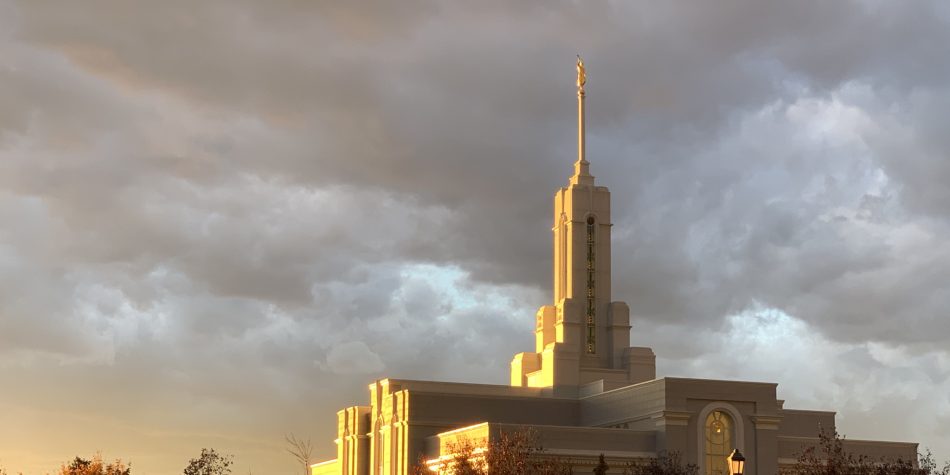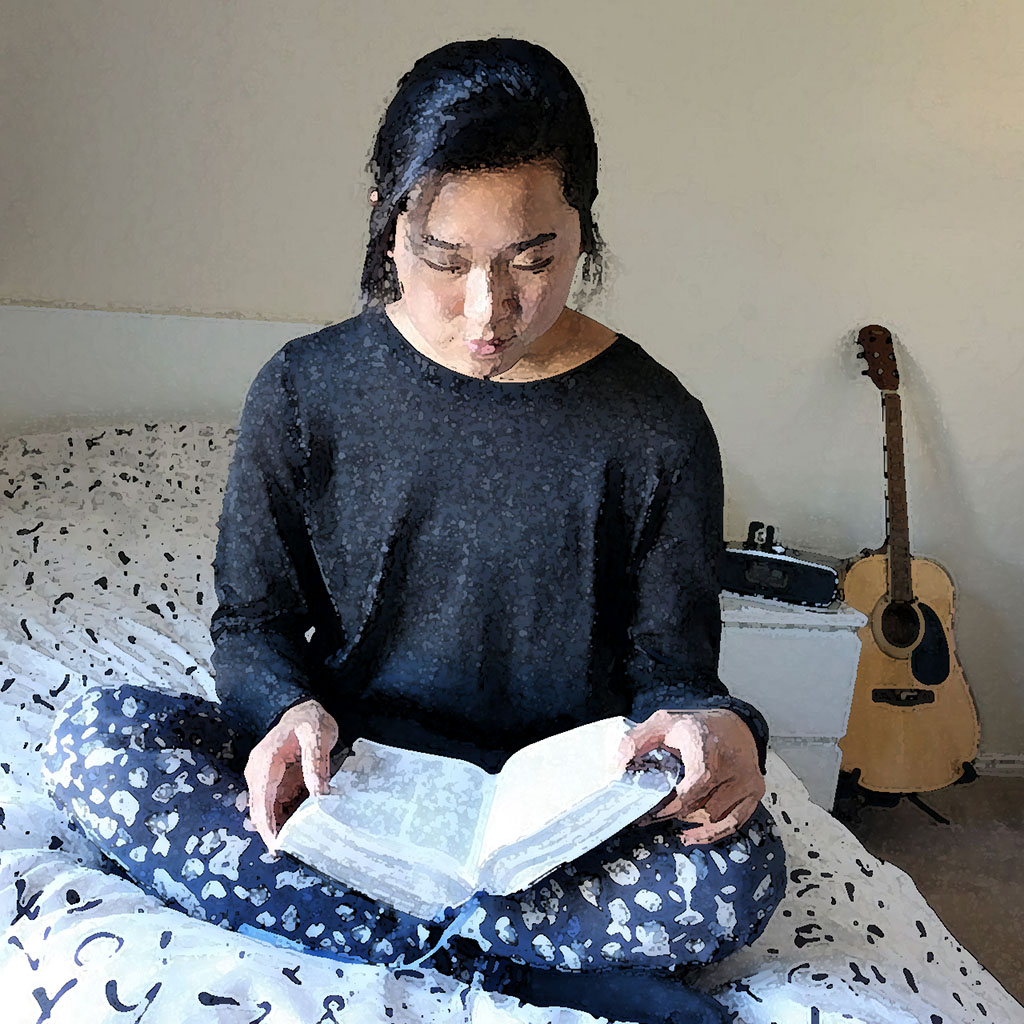As disciples of Jesus Christ, we are called to hold fast to the revealed truths of the Restored Gospel in a polarized and contentious world. This polarization is driving members of the Church to spiritually dangerous extremes, tempting some Latter-day Saints to reduce fidelity to knee-jerk traditionalism and others to abandon fidelity for worldly philosophies.
On the one hand, those who replace divine instruction with secular measures of progress risk relinquishing eternal truths for misguided worldly ideas. This can lead them to declare that the Church is behind the times on moral and social issues. On the other hand, those who focus solely on conserving what we have already received are prone to conflate human tradition with eternal truth. This can lead them to condemn any form of question-asking, faithful exploration, or subsequent revelation.
Like Odysseus sailing between Scylla and Charybdis, the path of discipleship takes us through a narrow course between two spiritual monsters: unbridled progressivism and obstinate fundamentalism. Navigating these perilous waters requires “radical orthodoxy.” Radical orthodoxy is an approach to the Restored Gospel that seeks to harmonize fidelity with exploration and cultural improvement.
Radical orthodoxy is orthodox because it promotes fierce fidelity to revealed truth, the institutional Church, and the Lord’s authorized representatives, and therefore rejects the excesses of progressivism. This includes meticulously heeding and unabashedly embracing the counsel and teachings of prophets and apostles regarding chastity and morality, the divinity of Christ, and the foundational claims of the Restoration—even when doing so runs contrary to popular, worldly views. Those who embrace radical orthodoxy strive to be valiant in their witness of restored truth.
The path of discipleship takes us through a narrow course between two spiritual monsters: unbridled progressivism and obstinate fundamentalism.
Radical orthodoxy is radical because it promotes bold exploration beyond what is familiar, and therefore rejects the obstinateness of fundamentalism. It is willing to revisit many facets of our received paradigm in order to apply the revealed doctrines and principles of the Gospel to the unique challenges of today. That includes—under the tutelage of modern prophets—a revolutionary reconsideration of traditions, paradigms, and applications of the Gospel inherited from prior generations.
Radical orthodoxy cultivates humility and a recognition that far less is certain about many doctrinal matters than we often presume. Those who embrace radical orthodoxy are not afraid to ask questions, and they eschew dogmatism with regards to lesser controversies—even while they boldly defend faith, diligence, and conviction on matters of covenant living, revelation, doctrine, and authority. As we revisit the lines between tradition and revelation, we are careful not to dishonor the prophets of the past, undermine the projects and programs of the Church, or ignore the moral witness and counsel of living prophets and apostles.
Radical Orthodoxy embraces the following virtues:
- Truth. We love and defend the Truth. We reject philosophies that suggest that there is no truth. We recognize, however, that without divine assistance, truth is very difficult to discern.
- Humility. We recognize our own limitations and we are willing to question our cultural and religious presumptions in light of both sound scholarship and ongoing revelation from God.
- Integrity. We do not believe in compartmentalizing the Gospel from our professional pursuits, politics, scholarship, social interactions, or hobbies.
- Fidelity. We are loyal to Jesus Christ and His Restored Church and submit to His divine authority by sustaining and following the local and general leaders of the Church.
- Seeking. We consider curiosity a virtue and desire to plumb the depths of the Gospel as well as of God’s Creation. Like Abraham, we seek to become “greater follower[s] of righteousness and to possess a greater knowledge” than we currently possess (Abraham 1:2)
Radical orthodoxy is not a faction, nor a label intended to set forth boundaries for any particular group or organization.
- Revelation. We affirm that the Church is guided by continuing revelation. We strive to allow the Holy Spirit to guide us in all aspects of our lives, including our professional or scholarly endeavors. We recognize, however, that only those with the proper authority and stewardship can declare revelation for the Church and the world.
- Faith. We know that Christ has already won the essential victories. We trust the Lord and His power to save us from sin and death. We also trust His ability to guide His Church and communicate His will to His appointed spokesmen, even when they are fallible.
- Hope. We are deliberately optimistic about the Church and its role in the world. We reject negative, cynical attitudes towards the Church, its leaders, and its teachings. We avoid nitpicking and murmuring.
- Charity. We love all of God’s children and we cultivate a soft-hearted temperament that rejects the spirit of contention towards those with different views, even while we vigorously defend the truth.
Radical orthodoxy is not a faction, nor a label intended to set forth boundaries for any particular group or organization. It is rather a rallying point, and invitation to embrace conviction and fidelity. It is also an invitation to reject fundamentalism and embrace the possibility of change, innovation, and progress in how we understand the Gospel. It is an occasion to reinforce our loyalties to the Resurrected Christ and the Church that bears His name and to strive to be “lower lights” burning as an example to others who are also navigating the treacherous waters of modern intellectual discourse.
Learn more at latterdayorthodoxy.org
Signatories
- Nathaniel Givens (Author)
- Jeffrey Thayne (Author)
- J. Max Wilson (Author)
- Valerie Hudson Cassler
- Stephen Cranney
- Christopher Cunningham
- Thomas Eastmond
- Dan Ellsworth
- Amanda Freebairn
- Nick Galieti
- Edwin Gantt
- Fiona Givens
- Terryl Givens
- Jonathan Green
- Ralph Hancock
- Jacob Hess
- Trevor Holyoak
- Benjamin Huff
- Joseph Lawal
- Ty Mansfield
- Frank Mcintyre
- Daniel Ortner
- Daniel Peterson
- Neal Rappleye
- Jasmin Gimenez Rappleye
- Nathan Richardson
- Jelaire Richardson
- Jennifer Roach
- Hanna Seariac
- Gerald Smith
- Gregory L. Smith
- Stephen Smoot
- Richard Williams

















